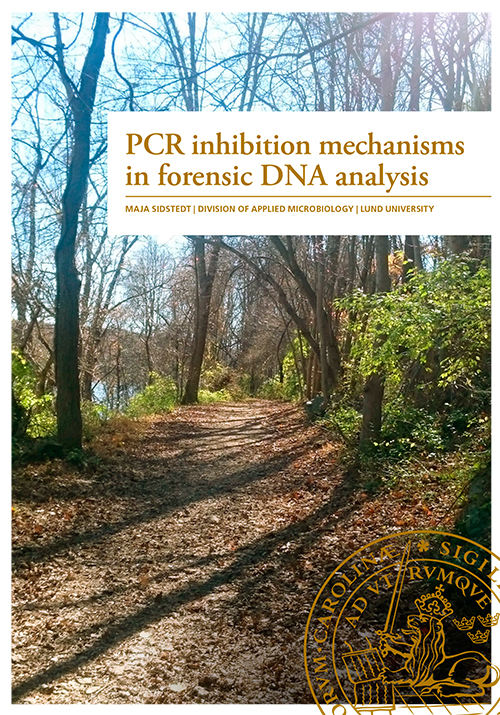My PhD project has been a journey, both figuratively and literally speaking. As an employee of the Swedish National Forensic Centre (NFC) in Linköping, I got the opportunity to do my PhD at Lund University in close collaboration with the National Institute of Standards and Technology (NIST) in the USA. Mentored and supervised by different researchers and working in the facilities of Applied Microbiology, NFC and NIST has been a great experience. My interests are in modern DNA analysis methods, data analysis and quality assurance. During my time as a PhD student, I have gained both molecular and technical knowledge regarding PCRbased DNA analysis and also how to deal with large and complex datasets. My first studies with qPCR and dPCR made it possible to really take on massively parallel sequencing (MPS). This technique holds promise for forensic DNA analysis, for example for prediction of appearance, ancestry and age, for body fluid identification and for DNA mixture analysis. I look forward to use my derived knowledge and skills to develop, validate and implement modern forensic DNA analysis methods at NFC.

